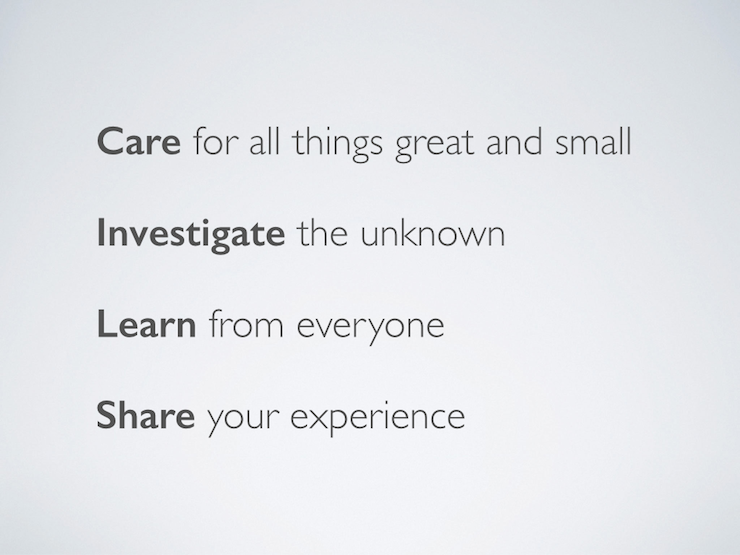Everyday thinking
Keeping your audience interested is tricky if you sound religious, so I find it hard to discuss lessons and ideas from Zen without over-explaining. I think much of my difficulty stems from the language.
The first time I heard the four great vows it was in the traditional Japanese. Like many religious traditions, the chant combines meaning and experience. The open vowels resonate in your chest and reverberate across the zendo. The sound evokes the endless path and our determination to follow it. This quality is lost in the English translations I know, so I studied the Japanese.
Nevertheless, there is another language barrier. The solemn nature of a vow evokes religious connotations. Therefore I often wondered if I was bonkers. An atheist chanting like a true believer!
Recently I heard a new version by Genjo Marinello Osho in the Chobo-Ji podcast. Genjo is both a Zen teacher and a psychotherapist who chose these words:
- Care for all beings great and small, animate and inanimate.
- Dispense with our own delusions centred around our instincts for survival.
- Allow ourselves to learn from every moment and every condition and let everything be our teacher.
- Share our experience of open-heartedness with everyone.
This language is clear and actionable. It inspired me to share them and I chose a warm crowd: the Makers at Makers Academy. To hold myself back from over-explaining I squeezed them onto one slide:

I changed the second one the most. I worried that bringing up delusions might discourage the Makers, so I chose a positive action: investigate. Makers live in the unknown; it’s key to immersing yourself in learning how to code. I still remember how hard it was to be challenged everyday.
As long as I find these four thoughts relevant I will revisit them everyday. I am glad of Genjo’s clear language. It prompted me to consider them anew and share my experience.
What do you think everyday?